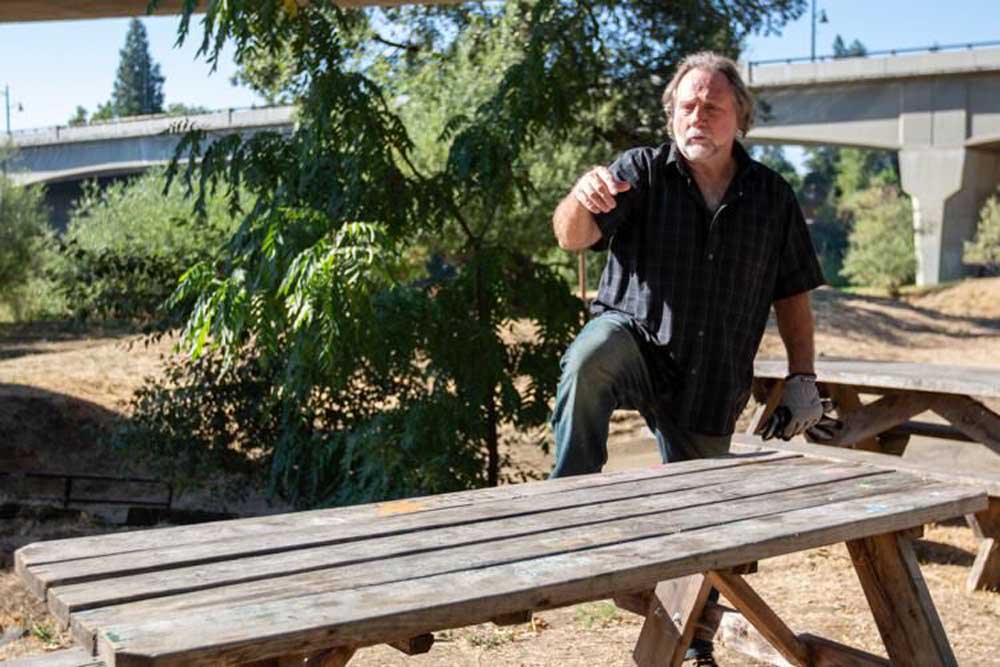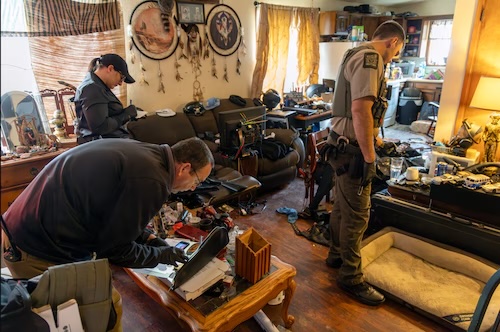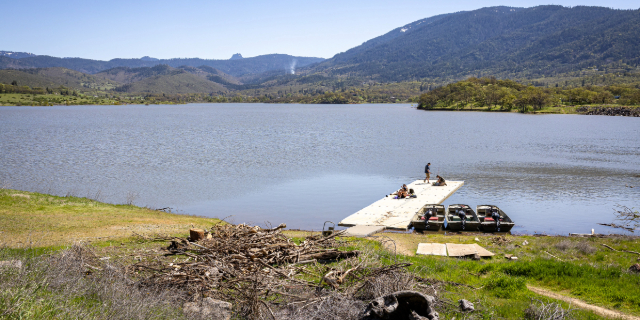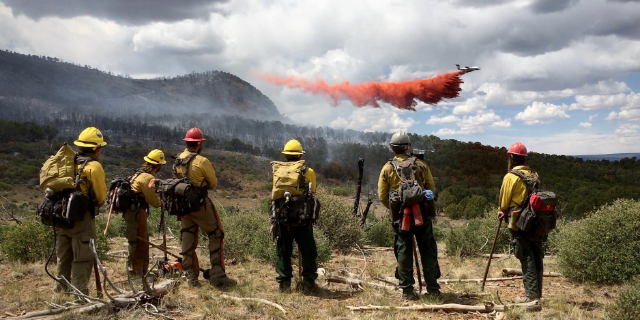‘This is just one solution’: Roseburg to get its first tent campsite for the unhoused
Published 12:05 pm Wednesday, September 20, 2023

- Bernie Woodard explains the construction plans of a tent camp in Roseburg underneath the Washington Avenue Bridge.
ROSEBURG — It looks like Roseburg is getting its first authorized tent campsites for the unhoused, and they’re not coming from the city, a church or a nonprofit organization, but from an individual who is considered unorthodox in his approach to helping others.
Bernie Woodard, through Elk Island Trading Group LLC, received final approval last week for a campsite at 303 W. Harvard Ave., which is under the Washington Avenue Bridge. Woodard also received initial approval for a second tent campsite at the northern end of Pine Street, on the opposite side of the river.
“This is just one solution of multiple solutions we need for the problems we have,” Woodard said of the campsites. “Our goal is mostly to provide temporary lodging to people until they get to better circumstances.”
Plans call for 10 tents at the Washington Avenue campsite, and Woodard said he would like to put couples in each one, for a total of 20 people. The irregular shaped site — 108 feet by 60 feet by 84 feet by 36 feet, totaling about 1/8 of an acre — has a fence around it with green privacy screening.
The site includes steel poles and rebar to help people secure their tents. Woodard said he plans to bring in two barbecue pits, picnic tables and provisions to create a cooking area. Two portable toilets will be placed just outside the fence, he said.
There will be at least one person on site to ensure campsite rules are followed, including no alcohol or drugs, Woodard said.
He acknowledged he’s still trying to figure some things out, like what other rules to put in place, and what the screening process will look like for people wanting to stay at the campsite.
Roseburg City Council passed the tent campsite ordinance in June 2022. The ordinance allows tent campsites on property zoned residential if they are operated by a church or nonprofit organization, and on property zoned commercial for other landowners.
It requires such properties to provide at least two toilets, adequate garbage service and a dedicated person to provide supervision during camping hours. No open flames are allowed at campsites, and property owners are forbidden to charge a fee to campers. The ordinance set a limit of 10 tents per campsite, and an occupancy of no longer than 29 days.
One thing Woodard said he isn’t worried about is finding people to live at the campsite.
“There are so many homeless here, you have to pick out which ones you’re going to help,” he said.
The campsite was signed off on by the city public works director, fire marshal and community development director.
“This email serves as authorization indicating that the tent camp site at 303 W. Harvard has been inspected and approved,” Community Development Director Stuart Cowie wrote to Woodard in an email Wednesday. “The camp may now begin to operate. Please be aware that the camp must adhere to the tent camping rules provided through resolution 2022-21. Failure to comply with any listed tent camping rules may result in revocation of approval by the Community Development Director for a tent camping site.”
Woodard said he may have to close the campsite during the winter if the river gets too high and threatens to wash the site out.
Woodard got initial city approval for a second campsite at 216 SE Pine St., between the railroad tracks and Umpqua River. Woodard has to put in a fence, porta-potties and trash containers before receiving final approval for the campsite.
The site overlooks the river and Woodard said he would like to set up yurts there, each 12 feet in diameter, instead of tents. He is still trying to get Cowie and other city officials to approve that idea.
But any activity at that site is at least a month away, Woodard said.
Criticism over the years
Woodard has drawn criticism over the years for what he calls “trade-offs” — the practice of allowing the unhoused to live on his property in exchange for working three hours a day. Some homeless advocates say the people should be paid for their work.
But Woodard defends the trade-offs, which he said represents a good and fair deal for both parties. Woodard said he settled on three hours because at the minimum wage — currently $13.20 in Douglas County — three hours is about the cost of a night at a campground.
One reason he likes the trade-off system is it allows people to feel self-sufficient, and the agreements are between him and the workers, without government interference.
“We start expecting the city and government to take care of every issue, instead of us doing it ourselves,” he said.
Elk Island trading group
Woodard announced in March that he was buying the building on 464 SE Jackson St., which ones housed a Rite Aide, in downtown Roseburg and an adjacent parking lot, with plans to build a hotel, condominiums, shops and a restaurant on the property.
Woodard, through the Elk Island Trading Group LLC, agreed to pay $762,500 for the 1.1 acre site, according to a purchase agreement with the family that owned the property for nearly 40 years. The building has been vacant for about half that time.
However, the deadline for that sale came and went, but the deal never closed. This week, Woodard said the closing date for the sale had been extended to Oct. 11. He added that he cannot talk about the sale due to a non-disclosure agreement with the sellers.
Woodard owns more than a dozen properties in the area, totaling about two miles along the South Umpqua River waterfront.
The most prominent of those properties is Elk Island, which covers just over 22 acres. Woodard and a group of allies have been working for a decade to clean up the island, removing trees, ivy, weeds, blackberry bushes and more.
The island was popular with scores of homeless people. At one point there were nearly two dozen camps spread out among a maze of blackberry bushes, Woodard said.
“There were guys out there who said they had been there for 20 years,” he said.
The island now features grass, a smattering of trees, a rustic outdoor amphitheater and a number of fishing spots.
Woodard envisions the island becoming a prime recreational site, featuring kayaking, row boats, fishing and more — a way to draw motorists from the interstate into the city for a day. For those who wish to stay longer, Woodard intends to put in yurts and possibly several tree houses.
But for now, his focus and energy is on the city’s very first tent campsite for the unhoused.
“I’m hoping this camp city can be a model for other people to open their own camp city,” he said. “Only time will tell.”






